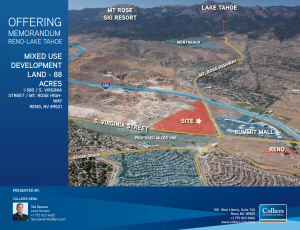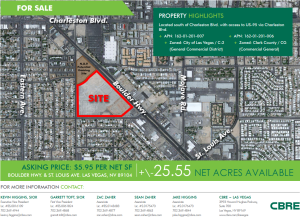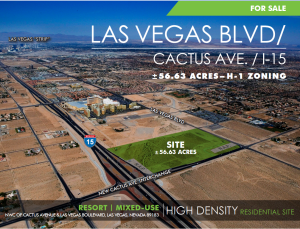Deutsche Bank Sells 19.6 Million Class A Shares After IPO Lock-Up Period Expired
Update 2: Deutsche Bank sells off its ownership stake, per Red Rock Resorts 8-K filing on Nov. 10, 2016.
Update 1: See “Deutsche Bank to sell $400m stake in Las Vegas gambling group” in Financial Times (Oct. 30, 2016).
Deutsche Bank will soon be able to dispose of its 17% ownership of Red Rock Resorts (NASDAQ: RRR), when the Las Vegas gaming company’s IPO lock-up period expires on October 24.
Deutsche Bank is in dire need of additional capital, so we expect it to sell off the Las Vegas casino stake as soon as it can on or after October 24. Deutsche Bank investors should certainly welcome the cash infusion and capital boost that can come from selling and exiting the casino assets.
Deutsche Bank is in the process of selling other non-core assets such as Abbey Life and its stake in China’s Hua Xia Bank. CEO John Cryan noted in July that the lender’s second-quarter revenues “benefited from the IPO of Red Rock Resorts.”
We estimate the German bank’s Las Vegas casino stake to be worth approximately $440 million. (The bank has not disclosed the specific number of Red Rock shares it beneficially owns.) In addition, according to the tax receivable agreement Red Rock signed as part of its IPO, the company is required to pay Deutsche Bank and other pre-IPO owners 85% of certain tax benefits to be realize when Deutsche Bank and other pre-IPO owners sell their ownership interests. The TRA payments will need to be made in cash before the company makes its dividend payments. As of June 30, the company’s TRA liability was $44.5 million.
As Deutsche Bank gaming analysts observed on May 22: [I]t is worth noting that at present, ~21% of the shares outstanding are held by legacy strategic investors, whose core business does not include owning gaming equities. Thus, post the 180 day, from IPO, lock up expiration, we believe the risk of secondary issuances could potentially weigh on shares.”



